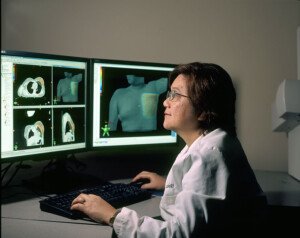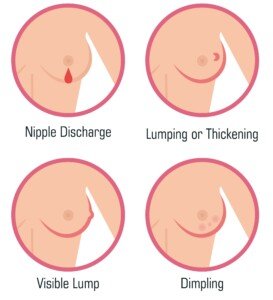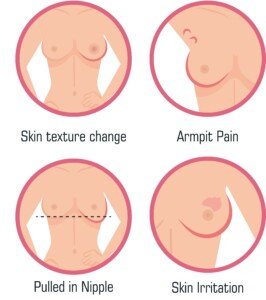
Unfortunately, the presence of a complex fibroadenoma in breast tissue means an increased risk of breast cancer.
However, the risk is influenced by this benign tumor’s cellular features.
“Simple fibroadenomas do not seem to increase breast cancer risk,” says Dr. Aashini Master, DO, a medical oncologist with a special focus on breast cancer treatment.
But if the fibroadenoma is complex, then there is a slight increase in risk.
“Since fibroadenomas most often occur in young women who are not undergoing routine screening, it is important that a women be familiar with her own breast tissue,” explains Dr. Master.
“This is where apps such as Keep a Breast can be particularly educational and beneficial for young women who may not have a regular self-check process or know what to do when they feel something abnormal.”
A research paper (New England Journal of Medicine report, July, 1994) says that certain cellular features of the fibroadenoma are associated with an increased risk.
This includes cysts within the fibroadenoma. Another feature is calcifications.
Women should ask their physicians to explain the full report on their firbroadenoma.
If there’s terminolgy that they don’t understand, they should feel free to ask for an explanation.
What exactly is a fibroadenoma?
This is a benign tumor (mass) of fibrous and glandular tissue.
When it has any of the particular cellular features, it is referred to as a complex fibroadenoma.
Ask your physician if your fibroadenoma is simple or complex.
If a complex fibroadenoma is removed, this does not eliminate the increased risk of breast cancer.
KAB for Breast Health
Dr. Master is with the Keep A Breast (KAB) Foundation, which launched its Keep a Breast app Sept. 1, 2020.
This app focuses on information, support and access, connecting users who’ve discovered something concerning with a telehealth medical professional via KAB’s partnership with Carbon Health, a technology-enabled healthcare provider – allowing users to have direct, instant support.
The 8 Signs of Possible Breast Cancer

FOUR BREAST CANCER SYMPTOMS. Freepik.com, studiogstock

FOUR MORE BREAST CANCER SYMPTOMS. Freepik.com, studiogstock
What about simple or non-complex adenoma and increased breast cancer risk?
The New England Journal of Medicine study by Dupont et al states:
Two thirds of the patients [in the study] had noncomplex fibroadenomas and no family history of breast cancer and did not have an increased risk.

 r. Master
r. Master







































